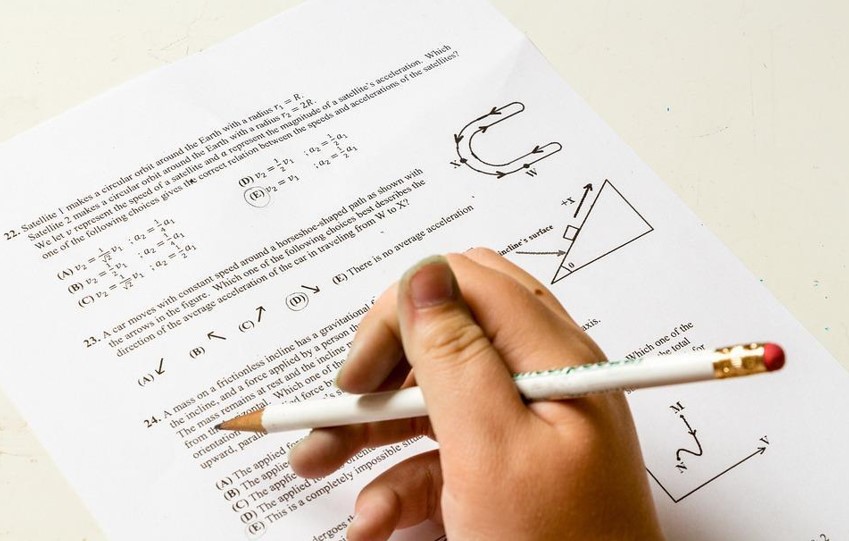While teachers’ lives would undoubtedly be easier if the learning playing fields were always “level,” that will never be the case. No matter how passionate and dedicated the teacher is, how modern and equipped the school is, or even how affluent the community is, some factors affect learning on an individual level that are difficult for teachers to control.
Becoming aware of these factors can help educators to tailor each learning program to specific needs and achieve the best possible outcomes for each student. Provided below are seven critical factors that affect the learning experience that educators should acknowledge when teaching their students.
Physical Factors
Let’s start with something fundamental and incredibly important: our bodies affect how we learn.
For example, there is an inextricable link between malnutrition and academic progress. A student who is constantly hungry will struggle to maintain the concentration and energy levels needed to learn new content and new skills.

Learners with physical disabilities may also have challenges when it comes to learning activities. Vision impairment, hearing loss, and other auditory processing issues can interfere with the learning experience as well as progress on basic tasks such as reading, writing, and spelling.
Another way that physical factors affect learning is related to the way our bodies dictate behavior. For example, certain medical conditions could result in a student disrupting class or exhibiting behavioral patterns or “ticks” that distract from learning.
This can create an unfortunate “master wheel” of sorts, where a physical issue creates a behavioral issue. The behavioral issue creates a discipline issue, and the discipline issue affects student learning.
Physical factors can be addressed in classroom settings with different types of seating (such as balance balls or wobble stools) as well as standing desks. Other items such as fidget sensory kits, stress balls, and noise-canceling headphones are also great tools for teachers to have on hand.
Environmental Factors
In this case, we mean the local environment. The immediate environment and instructional design of the classroom and the rest of the school (including the library, study hall areas, and more) set a tone for learning. If a learning space is chaotic and messy, it may be more difficult for students to concentrate on active learning. If it is bland and sterile, it can affect student moods and lower engagement.
Attitude

In most areas of life, a positive attitude can make a tremendous difference in student learning. Even if a student has circumstances that make it more challenging for them to learn, a positive, can-do attitude can help them overcome these challenges to a certain degree and could lead to more positive learning outcomes.
Background Knowledge
Everything we learn in school connects to skills we have previously mastered. So, our ability to write a thorough, compelling essay in middle school is tied back to some of the more basic work we did in reading and writing in elementary school.
Our background knowledge of multiplication tables, for example, relates to how well we are equipped to learn more complicated mathematical formulas. Our background knowledge affects how we learn in the future, so those who struggle with retention often struggle throughout each school year.

And there are considerable overlaps between subjects and disciplines: a failing grade in social studies could be driven by the student’s shortcomings in reading comprehension, which stem back to their earliest elementary years. A student’s background knowledge shapes her success throughout her academic career in every discipline.
Emotional Factors
A student’s emotions play a role in learning effectiveness. Fears and insecurities can stifle growth and prevent students from fulfilling their potential. Even the brightest students will limit their growth and progress if they struggle to manage their emotions in the classroom.
Students who struggle with a learning method or subject area may become discouraged or withdrawn, making it even more challenging to solve the problem, complete the task, or retain critical pieces of knowledge needed to progress in the course work.
Teachers
Last but certainly not least, the teacher’s personality, style, and tone in the classroom also represent an essential component of learning effectiveness. Student satisfaction and student engagement depend on many factors, but the teacher plays a significant role.
Some of these skills can be learned through professional development courses or training content, but many of them are innate. A teacher’s demeanor can set the tone for the entire classroom. Teachers who are easily frustrated and lack patience may have students that mirror that behavior and struggle to remain focused, disciplined, and calm during learning activities.
On the other hand, a teacher who is consistently steady, present, engaging, and encouraging models behavior for students to emulate and ultimately creates an environment more conducive to effective learning.

Empathy in the classroom is crucial to students, including university students and especially those at a young age. Students can develop confidence in their academic pursuits and social interactions when they feel seen, heard, and valued by their educators.
All of these factors can contribute to a student’s overall academic success. Learning effectiveness is not achieved by focusing only on attitude, environment, or management of emotions.
The best and most influential educators understand the need to take a holistic approach when teaching, tailoring the learning program to establish what works best for groups while also paying attention to the specific needs of individuals.




